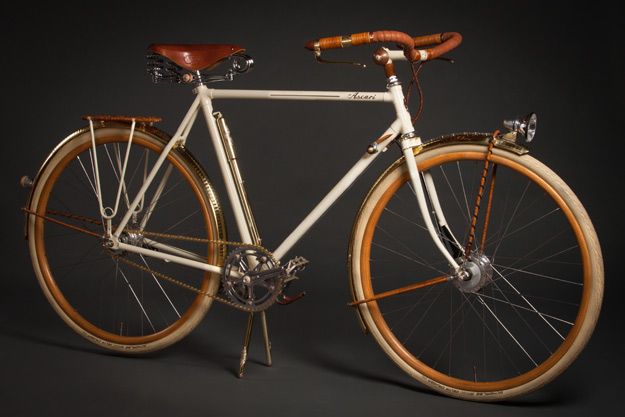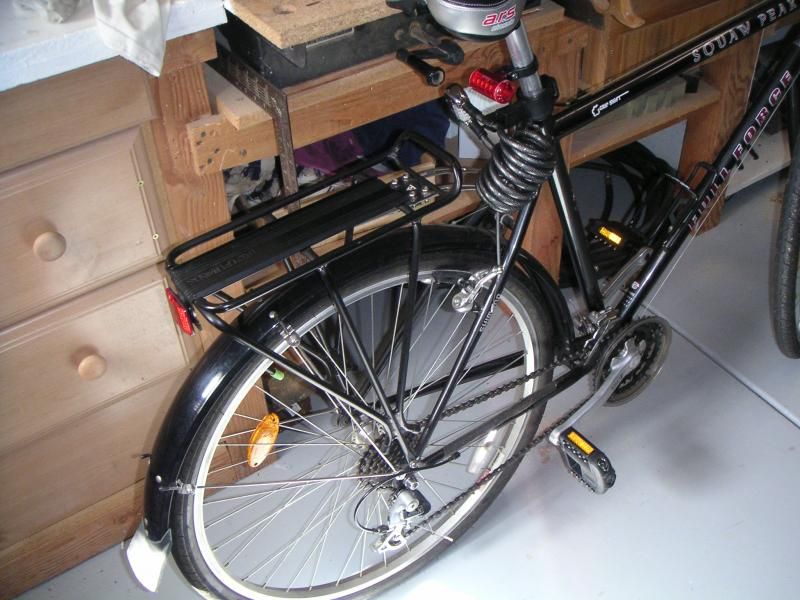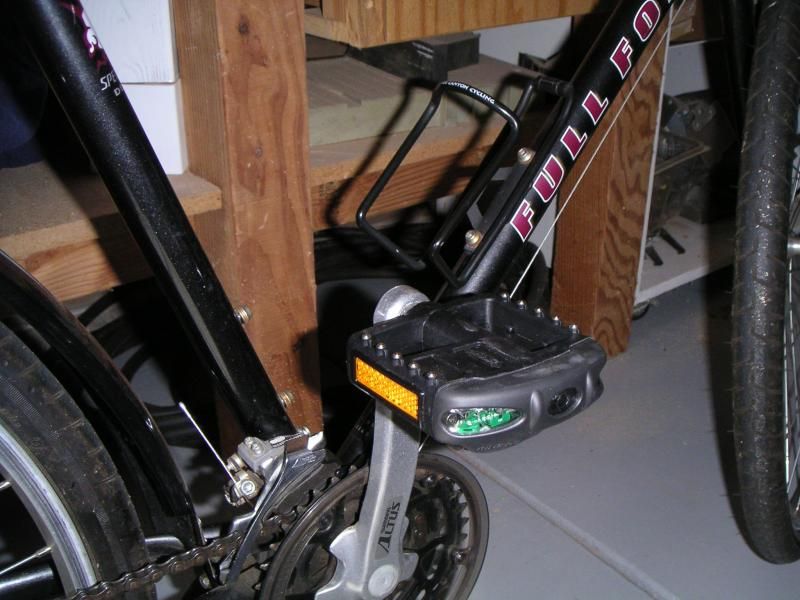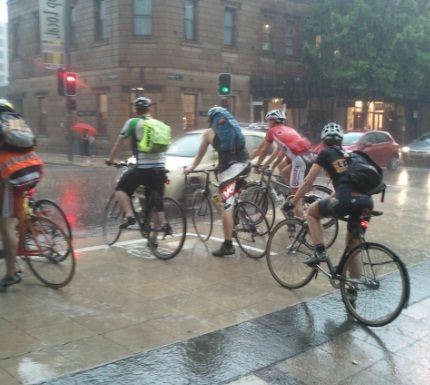The Tour De France is a famous bicycle race. Only the fittest men on earth compete in this race. It is extremely long, day after day of racing huge distance across the countryside on bicycles, and pushes the envelope of human performance. The small differences in equipment materials and setup are important to the outcome. The race drives design in bicycles and works its way down into components amateurs can buy, and eventually these design and material tweaks become the basic, bottom level cheap thing everybody has leaning against the wall of their garage.
The tour does flats, hills, and mountains. The mountain parts are mostly in the alps and Pyrenees of France. Anyplace with serious winding steep roads can build a copy of the race, locally, though getting sufficiently serious and trained cyclists is something else. When I was growing up, tour de france competitors trained on my local roads because they were ice-free in the winters yet were steep, twisty and BAD in the same ways the French roads were. Peter Mayle, in his Best selling autobiography "A Year In Provence" also described tour de France cyclists training on the local roads, and how those roads with their surprise corners with a changing radius would fling fast moving cars into trees, rock walls, or into gullies, often killing or injuring the driver and passengers. In this, Provence is very much like Home. Its the roads and mountains, the blind turns, and the overhanging trees.
If I didn't have a bike already, I'd be picking up a touring bike for the local roads. This is a very good place for bicycling because the locals drive around you. They see you. They don't try to run you over. This is really important when you're out there, huffing and puffing. We have many bicycle tourists up here, climbing the hills. They train. They exercise. They ride in clubs together, up to Scotts Flat Lake or down some of the canyons and back around again. Its reasonably civilized here. Just wild and overgrown and the summer days are hot. The mornings, though. The mornings are perfect for exercising.
Amazon doesn't just sell books. They also have bicycles, bicycle components, and accessories. I put a fender on my mountain bike so that when I go through a puddle I don't get spray up my back. Very important when local irrigation of lawns coincides with your commute to work. Of course, my commute at the time included a hill 100 feet tall. That doesn't sound like much, until you hit it and suddenly are downshifting and wheezing and moving slow for the rest of the day because the climb exhausted you. Where I live now has much higher hills, and while fitness freaks climb them, slowly and determinedly, I think if I did so I'd be even more worthless at work. And the time it would take to go the distances would eat up a couple hours of my day. My normal commute is 11 minutes. On a bike it would be around one hour. And the hills include urban Nevada City, which is built on pretty steep hillside. Paint Your Wagon is meant to take place in Nevada City, rather than near Bend Oregon where the movie version was filmed. Bend is almost flat. Nevada City is as steep as the steepest parts of San Francisco. Its also continuously occupied since the Gold Rush, with the local miners cabins updated with things like gas and electricity and indoor plumbing, but most don't have garages and the streets are very narrow. Its a beautiful and historic town on a hill. And much too steep for pedaling a bike. A scooter would pull the hill, slowly, and guys with Harleys often visit. It is a favorite haunt for Harley bikers whose Day Job is law, stocks, or medicine. What you call money to fund a rich fantasy life.
Its also popular with Hipsters with trust funds. Nevada City is the current landing point for those tired of the tourism of Santa Fe or the noisy visitors of Telluride and Aspen, but don't have the money to relax in Jackson Hole and aren't aware of Couer D'Alene. Someday Couer D'Alene is going to be the hipster hangout du jour. Flat enough for fixies, a big lake, and a college and a lumber mill so the outfits all work. You can pose with the best of them while writing your Great American Novel.
The electric light pedals I got for my commuter bike work, but I no longer ride in conditions where they matter. I'm pondering replacing them with something with less rolling resistance. That also means doing something about my handlebars, which shorten my bicycle a bit much. At this point, when I ride I feel some numbness in my fingertips, which is a bad sign. The alternative is to finally buy that Touring bike I've wanted. Of course, they want double what they did before. Same bike. I am not fond of ripoffs so I'm going with: "no." I wonder if I can improve Dad's Peugeot a bit? Then again, a scooter is more practical with these hills. After I get a job, I can afford it. Until then I'll drive. And maybe ride my bike a bit more. The hills should remind me that they are mocking me most seriously.
Everybody should have a bicycle. Someday it will really matter. Oil embargoes or Muslim Suicide Bombers could shut off the supply to fuel, or start a war that gets rationing going, leaving people without Limousines no gas to get around. People with Limousines are Better Than You. You can tell because they're in Limousines. They're often Liberals with lots of money, like certain California Senators. Ahem. Sure, you could spend the money to get an electric bicycle, one with a battery and motor to help pull you up a hill. Trouble is, they cost as much as a scooter and the batteries wear out in around a year. The replacement batteries are around $500, so that's $500 a year to operate the bike. Know how much gasoline a scooter needs for the same distance and time? Around $30. 100 miles per gallon means your gas goes a long way.
You and I had better have a bicycle we're reasonably comfortable riding to get around when the time comes. As I imagine it, bicycles will end up our first recourse to get to work. Or to get to the market to buy food. Which will also be rationed. You won't have to be fast, you'll just have to be persistent enough to keep pedaling until you get to the store, chain up your bike, buy your food, load it onto the bike, and pedal it home, without getting mugged by someone even more desperate and less fit. Someone will eventually do this delivery job for a living. A good living. Its really hard work, carrying cargo on a bicycle. You'll get fit, no doubt, but operators of Pedicabs died young in Japan. All the stress on their hearts killed them decades early. We'll think its macho to die from pedaling a bike, I'm sure. Humans get macho in tough times and crappy conditions.
I figure the bicycling will go on for most of a year, until such point as the world has fought the war, wrecked the fields and refineries, and come to terms with the supply being drastically less for the long run. We'll then take a collective breath and figure out what to do with what is available. For my money, I'd recommend solar panels on roofs for house power, fracking oil and natural gas everywhere, electric streetcars and trains to keep businesses open and allow some kind of economy to function, and small gasoline powered scooters for basic personal transport because while slow, they get 100 mpg. Yes, bicycles are a better deal on shorter commutes and on the flatland. Not so great in the mountains like here. We need the scooters. And we have GOLD, after all.
I encourage anyone who has a bicycle and doesn't ride it to get it back into shape and ride it about 10 miles, once a month. That will tell you if its still comfy and help you pick up any needed accessories to make it work better. For most people, this is more valuable than a personal firearm. The ability to move despite a fuel emergency is really key. Its not flashy like the Tour De France, but it will get your bacon and eggs home from the market. And your flour and government cheese. Mmm. Govt Cheese.




No comments:
Post a Comment